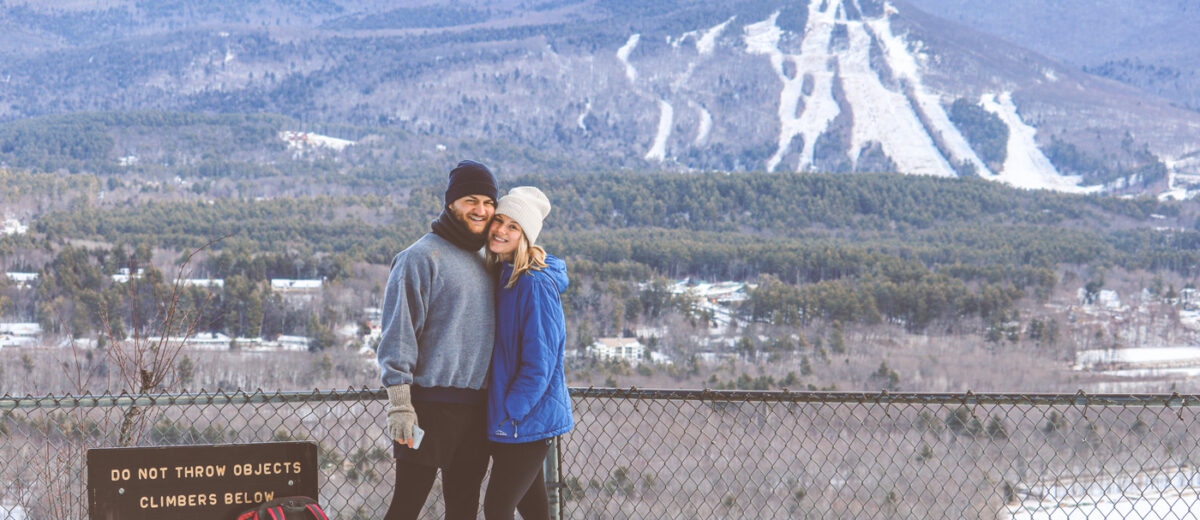Matt Kopyt
Patient Story: Matt Kopyt – One Step Too Many

During the COVID-19 Pandemic, 25-year-old Matt Kopyt moved to South Portland, Maine, with his girlfriend Ryan to take advantage of the amazing outdoor recreation that the state has to offer. After meeting at Drexel University and then working in Philadelphia for several years, they had decided that Maine was where they would start the next chapter of their lives together. Like so many others during the pandemic, Matt opted to work remotely as a marketing team lead for a startup company based in Philadelphia.
In April of this year, Matt and Ryan set out to climb Mount Kearsarge North, a 3,200-foot peak near North Conway, New Hampshire. It was a bright, cool day, with the perfect conditions for spectacular views of the White Mountains and a refreshing hike. That particular weekend, there was ice near the top of the mountain, but both were equipped with the proper footwear and gear, and they made the ascent safely.
The mountain’s summit includes a publicly accessible fire tower that rises another 15 feet from the peak. After enjoying lunch, they started taking some photos of the spectacular landscape from the deck atop the tower. As Matt moved to gain a new angle for a photo, he took one too many steps backward and fell 25 steps down from the tower to the rocky mountain below, severely injuring his head when he landed.
Matt doesn’t remember falling or hitting his head but was conscious as he lay on the ground. Luckily, Ryan is a nurse at Intermed in Portland and immediately started providing care using the first-aid kit they had brought along. Another hiker reached 911 dispatchers, and communication with first responders was established. “I always try to overprepare and expect the unexpected,” Matt shared.
“In this case, we were lucky to have some medical supplies, but I really wish I had brought warmer clothes and a thermal blanket. I’ll definitely be packing those in the future.”
While Matt remained conscious and could move his limbs, he and Ryan decided that the descent would be too treacherous in his current state. After more than two hours of waiting on the mountain, Matt’s condition was beginning to deteriorate. First responders were concerned with the time it was taking them to reach Matt, so they determined the best course of action was to extricate him from the summit. Since LifeFlight aircraft are not equipped to hoist patients, a Maine Army National Guard team in a Blackhawk helicopter with this capability was dispatched to retrieve Matt from the mountain’s summit.
Matt was transported to Memorial Hospital in North Conway, New Hampshire, where he started to receive treatment in the Emergency Department. Based on imaging, his physicians determined that Matt needed rapid transport to a trauma center to address the multiple areas of brain bleeds and bilateral occipital fractures. The LifeFlight 4 helicopter, based in Sanford, was dispatched immediately with pilot TJ Wesoloski, nurse Kayla Jones, and paramedic Adam Cafro onboard.
Upon arrival, the LifeFlight crew started providing advanced care and neurological trauma services that were not available at Memorial Hospital, then quickly transported Matt to Maine Medical Center in Portland. Even on one of the worst days of his life, Matt recalls the crew’s kindness and reassurance during the flight. He noted, “I know that every second counts in a situation like this, and I am extremely grateful that LifeFlight was there to transport me to a facility that could provide the care I needed.”
After a stay in the hospital, Matt’s brain bleeds and skull fractures were healing, and he returned home. He continued to experience concussion symptoms for the following month, but those have also continued to diminish. Today, Matt and Ryan are slowly starting long walks and light hikes on some of the urban trails in the Portland area as they work their way back toward more strenuous outings. Matt commented, “I don’t intend to allow this experience to hold me back from my future adventures. I will learn from it and live every day like it’s my last!”
LifeFlight of Maine provides a critically important invisible safety net for all those who love to explore Maine’s rugged and remote wilderness.

